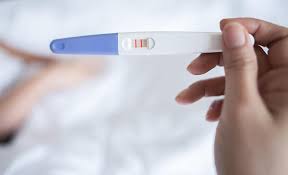Biochemical pregnancy is nothing more than an extremely early abortion. It is also called microabortion . It happens that a woman does not even notice this phenomenon, since she takes it for a simple delay in menstruation or for more than usual heavy menstruation.
Why is it called “biochemical pregnancy”? Although pregnancy ends after a few weeks, the mother's body immediately produces human chorionic gonadotropin ( beta-hCG ). This hormone is released only at conception, when the fertilized egg is implanted into the uterine cavity. Typically, levels of human chorionic gonadotropin in the mother's bloodstream gradually increase during the first 8–10 weeks of pregnancy, then decrease and stabilize at minimal levels throughout the remainder of pregnancy.
Pregnancy is called biochemical on the basis that a pregnancy test will give a positive result due to the presence of beta-hCG , but an ultrasound will not reveal the presence of an embryo or gestational sac.
What are the causes and risk factors for biochemical pregnancy?
It is difficult to identify the exact reasons that led to biochemical pregnancy. Assessing fetal growth restriction and miscarriage is also complicated by the fact that the body naturally eliminates products of conception during menstruation, making it difficult to obtain samples for analysis.
Possible factors that may explain the nature of the phenomenon include: genetic abnormalities of gametes (egg and/or sperm); malformations of the uterus; changes in the developing embryo (chromosomal abnormalities, implantation defects, etc.); unhealthy lifestyle of parents ( smoking , alcohol, high levels of stress, etc.); infections.
Physiological or pathological? Biochemical pregnancy is often interpreted as something “pathological”. In fact, this is a physiological phenomenon and is part of the normal reproductive process: it may happen that the egg is fertilized but not implanted, or implanted but does not develop properly.
Biochemical pregnancy: how to recognize it?
In many cases, a biochemical pregnancy ends four to five weeks after conception. Many women do not have time to realize or suspect that they are pregnant. Some, however, discover a chemical pregnancy only because they have a regular menstrual cycle and experience an “unusual” delay. In cases where a woman undergoes a special infertility treatment program, where pregnancy is monitored from the moment the embryo is implanted into the uterus, then, of course, it is easier to track a miscarriage in the early stages.
The most common signs and symptoms are: delayed menstruation; menstrual flow is heavier than normal, with clots; blood is bright red; abdominal pain; mild uterine contractions and back pain.
Specialists from Bogolyuby MC emphasize that biochemical pregnancy does not entail any physical problems or special consequences, since fertility is not impaired and a woman, if she wishes, can try to conceive a child again . However, this condition is certainly difficult from a psychological point of view. Women who, for example, undergo artificial insemination, can have a very difficult time experiencing a failed pregnancy.
What to do? In most cases, biochemical pregnancy does not require any intervention, that is, we wait for the arrival of menstruation, leaving nature to regulate the situation. The only potentially useful intervention to control the course of a biochemical pregnancy is to monitor levels of the hormone beta-hCG , monitoring its decline. In fact, if an abortion occurs, human chorionic gonadotropin naturally decreases. If the beta-hCG value increases or remains stable and there is no embryo inside the uterus, additional diagnostic tests must be taken to avoid the risk of ectopic pregnancy.
If the menstrual cycle resumes as usual, a new pregnancy can be attempted after two to three months.



















